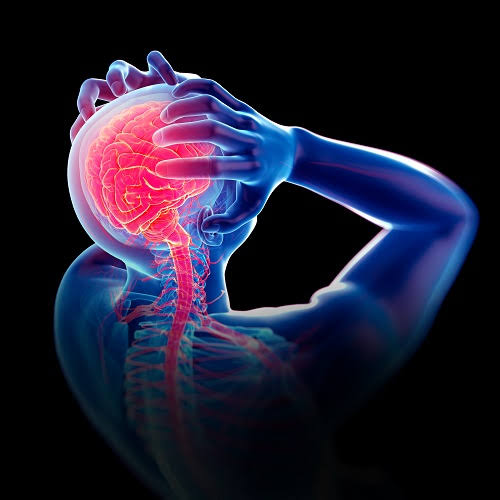- Get link
- X
- Other Apps
JUST IN
- Get link
- X
- Other Apps

Q. I get headaches constantly, but it seems like the men in my life get them less frequently. Are headaches more common in women? And if so, why?
It’s true: Women get more headaches than men do. In fact, when researchers asked participants in a recent national survey if they were bothered “a little,” “a lot,” “somewhere in between” or “not at all” by a headache or migraine in the past three months, women were nearly three times as likely as men to report having been bothered “a lot.”
Although there are likely many contributors, research suggests that one clear reason for the gender discrepancy is hormones.
Other causes include:
the combined pill (combined oral contraceptive pill) – some women find their headaches improve while they're on the pill, but others report more frequent attacks, especially in the pill-free week, when oestrogen levels drop
the menopause – headaches usually worsen as you approach the menopause, partly because periods come more often and partly because the normal hormone cycle is disrupted
pregnancy – headaches can get worse in the first few weeks of pregnancy, but they usually improve or stop completely during the last 6 months; they do not harm the baby
Signs of hormone headaches
It's worth keeping a diary for at least 3 menstrual cycles to help you check whether your migraines are linked to your periods.
If they're linked, a diary can help to pinpoint at what stage in your cycle you get a migraine.
The Migraine Trust website has a downloadable headache diary, which may be a useful tool.
Self-help tips for hormone headaches
If keeping a diary reveals that your headaches develop just before your period, you can try these tips to help prevent a migraine:
Eat small, frequent snacks to keep your blood sugar level up. Missing meals or going too long without food can trigger attacks. Have a small snack before going to bed, and always eat breakfast.
Have a regular sleep pattern, and avoid too much or too little sleep. Insomnia usually gets better by changing your sleeping habits.
Avoid stress. If this proves difficult, find ways to deal with stress, such as taking regular exercise and using relaxation strategies. Use these 10 stress busters

Comments
Post a Comment
Let know your comments